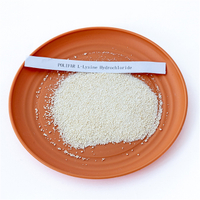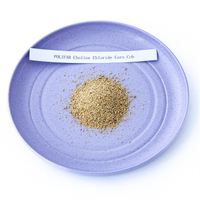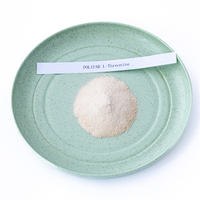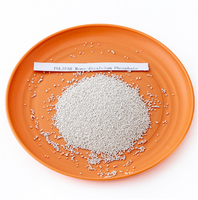Views: 0 Author: Site Editor Publish Time: 2024-02-22 Origin: Site








In the realm of pharmaceuticals, food processing, and beyond, lactose monohydrate stands as a pivotal ingredient with diverse applications. In this comprehensive guide, we delve into the nuances of lactose monohydrate, exploring its grades, uses, and potential side effects. Join us as we unravel the mysteries of this ubiquitous compound and shed light on its multifaceted role in various industries.
Lactose monohydrate, a crystalline form of lactose, is a carbohydrate commonly found in milk. It consists of one molecule of lactose combined with one molecule of water, distinguishing it from its anhydrous counterpart. Lactose monohydrate serves as a key ingredient in various industries due to its unique properties and versatile applications.
Lactose monohydrate is available in various grades, each tailored to meet specific quality standards and application requirements. Pharmaceutical-grade lactose monohydrate undergoes stringent purification processes to ensure high purity and low moisture content, making it suitable for pharmaceutical formulations such as tablets and capsules. Food-grade lactose monohydrate, on the other hand, meets the standards set for food additives and is commonly used as a bulking agent, sweetener, and flavor enhancer in food and beverage production. Additionally, industrial-grade lactose monohydrate serves diverse industrial applications beyond pharmaceuticals and food processing.
Lactose monohydrate is a crystalline form of lactose that usually exists in the form of crystals. In a pure water environment, each lactose molecule will combine with a water molecule to form lactose monohydrate. Therefore, the main forms of lactose monohydrate include:
Crystalline form: Lactose monohydrate exists in crystalline form, in the form of white or nearly white granular crystals. These crystals usually have a certain degree of crystallinity and morphology, and crystals of different particle sizes and shapes can be obtained through appropriate preparation processes.
Powder form: Lactose monohydrate can also be found in powder form, usually used in the preparation of solid preparations or processed foods. The particle size and morphology of lactose monohydrate powder can be adjusted and controlled according to specific needs to meet different application requirements.
Anhydrous lactose: Anhydrous lactose refers to the form of lactose molecules that do not bind water molecules, and its chemical formula is C12H22O11. Compared with lactose monohydrate, the crystal structure of anhydrous lactose is more stable and less susceptible to moisture. Therefore, anhydrous lactose is more common in some pharmaceutical and food applications where greater stability is required.
Lactose Monohydrate: Lactose monohydrate is a crystalline form of lactose with one water molecule bound to each lactose molecule. Therefore, its chemical formula is C12H22O11·H2O. This water molecule makes the crystal structure and physical properties of lactose monohydrate different from lactose anhydrous. Lactose monohydrate may absorb more water in humid environments, causing its solubility and stability to be different from lactose anhydrous in some circumstances.
Lactose monohydrate has good solubility, stability, and versatility, and can meet the various needs of pharmaceutical, food, and other industries, so it is widely used in these industries. The following are the main uses of lactose monohydrate:
Pharmaceutical industry: Lactose monohydrate is widely used as an excipient for drugs in the pharmaceutical industry. It is commonly used as a filler and diluent in tablets and capsules, helping to maintain drug stability and ensure dosing accuracy. In addition, lactose monohydrate can also be used to prepare dry powder inhalers (DPI) and inhalation powders for the treatment of respiratory diseases such as asthma and chronic obstructive pulmonary disease (COPD).
Food industry: Lactose monohydrate is widely used as a food additive in the food industry. It is commonly used as a sweetener, flavor enhancer, and thickening agent in the manufacture of a variety of foods and beverages such as dairy products, baked goods, confectionery, and condiments. Lactose monohydrate can also be used as a structural stabilizer in products such as ice cream and milkshakes to enhance their taste and texture.
Medical devices: Lactose monohydrate also has certain applications in the manufacturing of medical devices. It can be used as a carrier for medical powders to prepare products such as medical dressings, pharmaceutical sprays, and medical coatings. The low cost and good biocompatibility of lactose monohydrate make it one of the ideal choices for the medical device industry.
Lactose monohydrate, as a common food additive and pharmaceutical excipient, has many advantages and disadvantages. As an advantage, lactose monohydrate has a wide range of applications and can be used in pharmaceutical, food and other industries; its good water solubility makes it easy to use in the preparation process; at the same time, as a sweetener and structural stabilizer, it can improve food taste and increase the sweetness of the product. In addition, the cost of lactose monohydrate is low, which can reduce the production cost of the product and improve the competitiveness of the product.
However, lactose monohydrate also has some disadvantages. First of all, for people with lactose intolerance, consuming products containing lactose monohydrate may cause indigestion and gastrointestinal discomfort; secondly, lactose monohydrate is hygroscopic and prone to moisture, affecting the quality and stability of the product; In addition, excessive intake of lactose monohydrate may cause adverse reactions such as indigestion, bloating, and diarrhea.
In summary, lactose monohydrate has dual properties in application. It is necessary to give full play to its advantages while paying attention to avoid its possible adverse effects to ensure product quality and safety.
When seeking premium-grade lactose monohydrate for your manufacturing needs, trust Polifar, a leading B2B website specializing in food additives. With a commitment to quality and customer satisfaction, Polifar provides reliable sourcing solutions, ensuring that your specifications are met with prion. Visit Polifar today to explore their range of high-quality lactose monohydrate products and elevate your formulations to new heights.
Incorporating Polifar into your supply chain ensures access to top-notch lactose monohydrate, enabling you to deliver exceptional products and exceed customer expectations. Unlock the full potential of lactose monohydrate with Polifar as your trusted partner.






